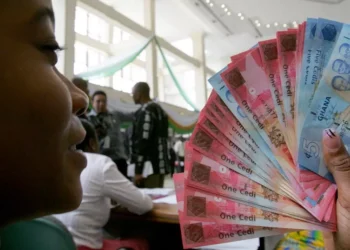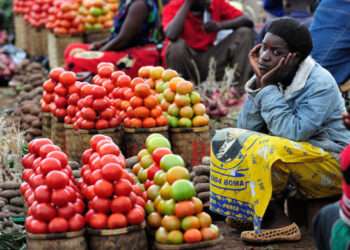The International Monetary Fund (IMF) placed Ghana in the 4th position in the Sub-Saharan Africa (SSA) among the countries with the highest private savings.
This was disclosed in a report by the International Monetary Fund on “Private Savings and COVID-19 in Sub-Saharan Africa’ by the International Monetary Fund (IMF).”
Savings, it noted, were the most important source of financing for Ghanaian households’ survival during COVID-19, followed by loans, goodwill, and working. The paper re-examined the main private savings determinants in Africa, followed by an analysis of the COVID-19 pandemic impact on private savings in the region and other country groupings. Using an unbalanced panel data from 1983−2021 for 31 SSA economies, the paper found that real per capita economic growth remains a key historical determinant of private savings in the region.
Private Savings During COVID-19 in SSA
In contrast with other regions, private saving rates did not increased during COVID-19 in SSA.
“Instead, COVID-19 deaths in our estimations are significantly associated with a decline in private savings in SSA. Robustness checks and a descriptive analysis of household surveys during the pandemic corroborate those results.”
IMF
According to the report, despite the challenges facing the economy, private savings in Ghana grew from about 24 per cent in 2019 to about 30 per cent in 2022. The report added that oil exporting and middle-income countries such as Ghana, are the highest savers in the region.
The report further indicated that private disposable income in the country had gone up considerably.
“The private saving rate in SSA has increased during the last two decades to an average rate of 17.3 per cent in 2019 from 11.5 per cent in 1983.
“However, there is significant heterogeneity across the SSA countries. Oil exporters and middle-income countries (MICs) are the highest savers in the region. Private saving rates, as expected, are particularly low in fragile states and low-income countries (LICs).”
IMF
The World Bank in its recent Global Findex Report said though the share of adults in Ghana having an account at a financial institution remained mostly stagnant since 2017, mobile money account ownership increased to 60 per cent from 39 per cent in 2017.
Deposits Record Growth
Again, the July 2022 Banking Sector Development Report by the Bank of Ghana also revealed that deposits recorded a robust growth of 19.1 per cent to ¢131.3 billion as of the end of June this year, albeit lower than the growth recorded a year earlier.
Angola occupies the first slot, accounting for the largest private savings in SSA with about 55 per cent while Gabon and Congo came second and third with 42 per cent and 41 per cent respectively.
Overall, the IMF stated that private saving rate in SSA increased during the last two decades to an average rate of 17.3 percent.
READ ALSO: German Luxury Carmaker Targets US $75 billion in Landmark Porsche IPO





















